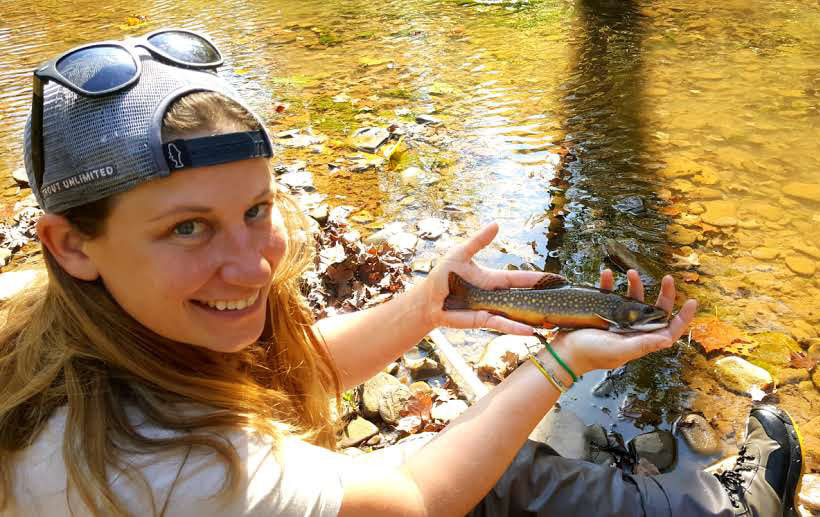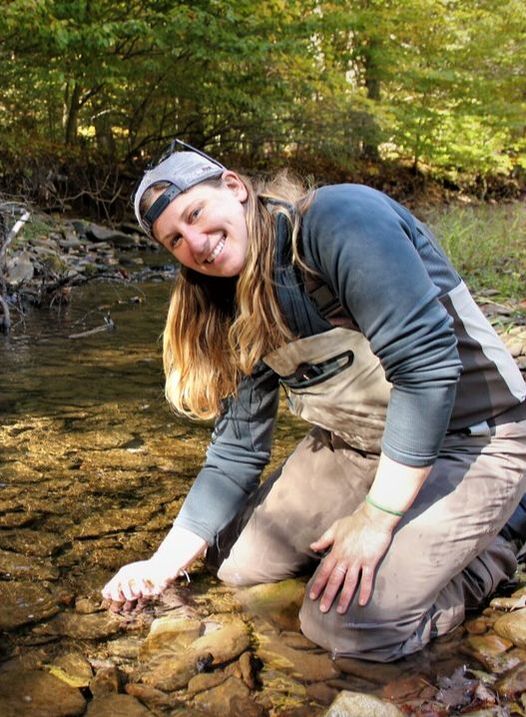|
Over the course of a decade, Hammersley Fork – a tributary of Kettle Creek in portions of Potter and Clinton counties – had jumped its bank and traveled down a stretch of road. “People were essentially driving through a Class A trout stream,” said Kathleen Lavelle, a field coordinator for Trout Unlimited’s Pennsylvania cold water habitat program. “Trout Unlimited worked with a local contactor, DCNR, land owners and local groups to put in a channel block upstream to re-route the creek back where it belonged.” But that left numerous species of fish trapped in a ¾-mile stretch of dewatered road.
She admits that the messaging around abandoned mine draining needs additional work.
“Even though there’s not as much coal mining going on in Pennsylvania right now, the restoration we are working to complete is on mines that have been abandoned for decades and decades,” she said. “A tremendous amount of work has been done in land reclamation and treatment systems developed to limit the impact. There is still a ton of work to be done.” Lavelle feels that many people underestimate the native and wild trout resources within our state. “We have a saying here that if you take care of the fish, the fishing will take care of itself,” she said. “That includes practicing things like catch-and-release and refraining from mowing down the banks if you live along a stream – leave some protection from sediment erosion and opportunities for shade and places to hide for fish.” She also touted the importance of devoting some personal time toward making a difference. “I always played outside, and grew up hunting, fishing and hiking. I never dreamt of a job as cool as I have now with Trout Unlimited,” she said, “but I volunteered with them before I worked with them. I am a big proponent of volunteering, fishing and cold, clean water.”
2 Comments
Ben Nevin
12/29/2020 04:05:37 pm
Nice work Kathleen! Your perspective is encouraging and inspiring.
Reply
12/31/2020 07:06:06 pm
Always enjoyed working with Kathleen: boundless energy and enthusiasm ! PA is much better for her efforts ! Thank you !
Reply
Leave a Reply. |
AuthorsRiverkeeper John Zaktansky is an award-winning journalist and avid promoter of the outdoors who loves camping, kayaking, fishing and hunting with the family. Archives
April 2024
Topics |


 RSS Feed
RSS Feed